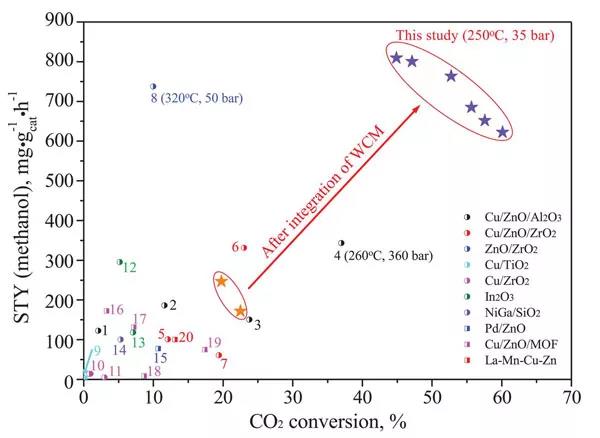
hotline:
17715390137
Tel/Wechat:
18101240246 (Technology)
0512-68565571
Email:mxenes@163.com (Sales Engineer)bkxc.bonnie@gmail.com
Scan the code to follow or search the official account on WeChat:
2D Materials Fronrier After paying attention,
click on the lower right corner to contact us,
Enter enterprise WeChat.
Professional Services Online

We explored the possibility of making nanochannels to repel small gas molecules about the size of hydrated ions (such as Na +, 6.6Å) for catalysis under high temperature and high pressure conditions. For example, the by-product water strongly inhibits the kinetics and thermodynamics of the hydrogenation of CO2 to a liquid fuel such as methanol. The air-repellent and water-conducting nanochannels can remove water and retain reaction gases and products while increasing the reaction rate and shifting the equilibrium to the direction of product generation. However, the ability to distinguish between water molecules (kinetic diameter 2.6Å) and gas molecules down to H2 (kinetic diameter 2.9Å) is very challenging. In addition, nanochannels need to be assembled without defects into practical separation membranes that can operate at pressures> 200 ° C and> 20 bar.
[Picture and text guide]

Figure 2 DFT simulation of molecular channels through NaA zeolite channels

Figure 3 Conceptual schematic and catalytic performance of a membrane reactor

Figure 4 Comparison of WCMs-catalyzed MR and literature in terms of CO2 conversion and methanol space-time yield

Literature link: Na + -gated water-conducting nanochannels for boosting CO2 conversion to liquid fuels (Science, 2020, DOI: 10.1126 / science.aaz6053)

| Reminder: Beijing Beike New Material Technology Co., Ltd. supplies products only for scientific research, not for humans |
| All rights reserved © 2019 beijing beike new material Technology Co., Ltd 京ICP备16054715-2号 |